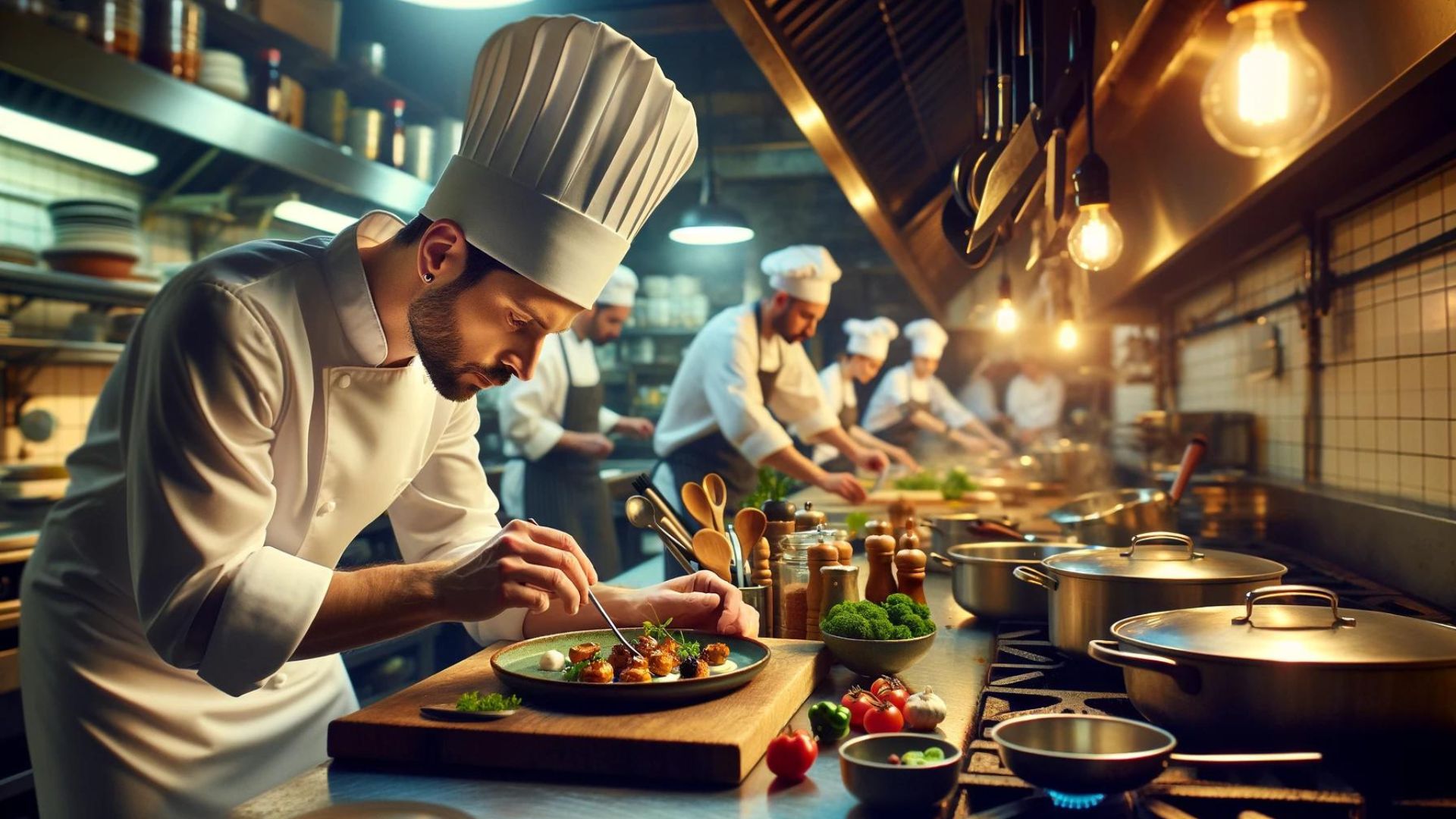Unveiling the Life of a Professional Chef
Imagine the sizzle of a perfectly seared steak, the heady aroma of fresh herbs, and the artful presentation of a dish that’s almost too beautiful to eat. This is the realm of the professional chef – a world fueled by creativity, driven by relentless passion, and bound by the unwavering pursuit of culinary excellence. But behind the tantalizing plates and the allure of kitchen artistry lies a demanding reality; let’s dive into the life of a professional chef.
The professional kitchen is a symphony of organized chaos. It’s a place where flames dance, knives flash with practiced precision, and the clock is an ever-present tyrant. In this high-pressure environment, the chef is the maestro, orchestrating a team of cooks, each with their own specialized role. It’s part culinary artistry and part high-stakes management. You’ll see the chef barking out orders, tasting sauces, tweaking seasoning, and inspecting plates with an eagle eye before they race out to eager diners.
Being a chef isn’t just a job; it’s a lifestyle. The hours are long, often stretching late into the night and spilling into weekends and holidays. Those family dinners and social gatherings? A chef often experiences them from the other side of the kitchen. It’s a sacrifice fueled by an unyielding love for food and the thrill of creating unforgettable dining experiences.
The path to becoming a professional chef is paved with hard work and dedication. While there’s the allure of glamorous culinary schools, many chefs hone their craft through years of grueling apprenticeships, starting at the very bottom of the kitchen hierarchy. It’s a climb from dishwasher to prep cook, line cook, and perhaps, if they’re talented and tenacious, to sous chef and then finally, head chef. Along the way, it’s about mastering techniques, memorizing recipes, and learning the intricate dance of a high-volume kitchen.
The rewards? Those come in many forms. There’s the adrenaline rush of a perfectly executed dinner service, the quiet satisfaction of an empty plate returned to the kitchen, and the occasional glowing review from a discerning food critic. A great chef also finds joy in mentoring young cooks, passing on the knowledge and passion that fuels the culinary world. And, of course, there’s the potential for recognition, be it a Michelin star or a loyal clientele that flocks to their restaurant night after night.
Think about how the food you eat shapes your life. The birthday cake that marks a milestone, the comforting soup on a sick day, the celebratory feast with loved ones – food is woven into the tapestry of our experiences. Professional chefs are the architects of these moments. They understand that food is more than just sustenance; it’s emotion, memory, and pure artistry.
So, the next time you savor an expertly prepared dish, remember the unseen world behind it—the long hours, the relentless pressure, and the unwavering dedication of the chef who brought it to your table. Understanding their world deepens your appreciation of the art on your plate. Now, if you find yourself drawn to the heat of the kitchen, the thrill of creation, and the pursuit of culinary mastery, perhaps the life of a professional chef might be the perfect recipe for you.
Why Should You Care?
- Making Informed Career Choices: If you have a passion for food and are considering a culinary career, understanding the realities of a chef’s life helps you make a well-informed decision about your future path.
- Appreciating the Culinary Arts: Learning about the challenges and dedication of professional chefs deepens your appreciation for the food you enjoy in restaurants. It helps you recognize that there’s a whole world of effort behind every delicious dish.
- Supporting Local Restaurants: Understanding the sacrifices chefs make can encourage you to support your local restaurants and the talented people behind them.
Key Takeaways:
- Passion is essential: Being a professional chef is incredibly demanding. Unwavering passion for food is what sustains those in the industry.
- It’s a lifestyle, not just a job: The long hours, missed social events, and physical toll are part of a chef’s life.
- Hard work and apprenticeships: Most chefs work their way up through years of hard work, often starting in low-level positions in the kitchen.
- Food is more than nourishment: Chefs understand the power of food to create memories, emotions, and experiences.
Keywords:
- Professional Chef: An individual who has trained and is skilled in all aspects of food preparation, leading a restaurant kitchen.
- Culinary Arts: The art and practice of preparing, cooking, and presenting food.
- Kitchen Hierarchy: The structured ranking system within a professional kitchen, with roles from dishwasher to executive chef.
- Mise en Place: A French term meaning “everything in its place.” It’s the practice of chefs meticulously organizing ingredients and tools before service.
- Dinner Service: The peak period of activity in a restaurant, usually the evening mealtime.
- Sous Chef: The second-in-command in a kitchen, directly under the head chef.
- Michelin Star: A highly prestigious rating awarded by the Michelin Guide to restaurants of exceptional quality.
- Food Critic: A professional who analyzes and writes reviews of restaurants and their food.
- Apprenticeship: A system of on-the-job training where an aspiring chef learns under the guidance of experienced chefs.
- Culinary School: An educational institution specializing in the culinary arts, offering diplomas or degrees.
Frequently Asked Questions
- Can I become a chef without culinary school? Yes, while culinary school provides a solid foundation, many successful chefs build their careers through apprenticeships and on-the-job experience.
- What are the salary expectations for chefs? Chef salaries vary widely based on experience, location, and the type of establishment. It can range from modest wages to very high incomes for top chefs at renowned restaurants.
- What personality traits are helpful for a chef? Chefs need to be organized, thrive under pressure, possess leadership skills, be creative, and have a strong work ethic.
Myth Buster
- Myth: Being a chef is glamorous.
- Reality: While there are celebrated celebrity chefs, the reality for most is long hours, physically demanding work, and a high-pressure environment.
Let’s talk
- Do you have a newfound appreciation for the work of chefs?
- If you love to cook, could you envision it as a career?
- What qualities do you think make a great chef?
Share your thoughts in the comments below!












0 Comments